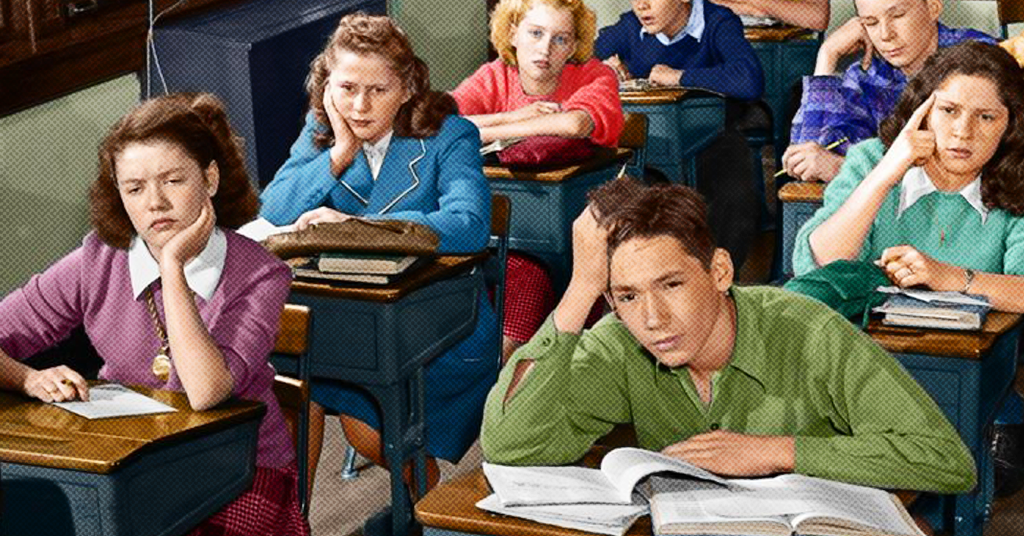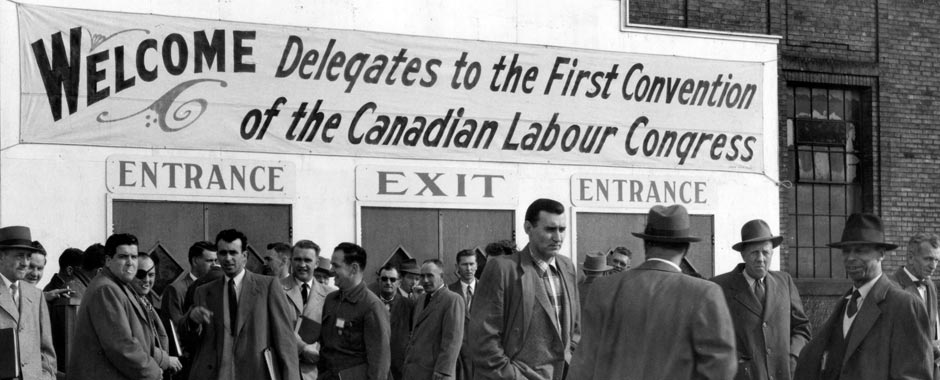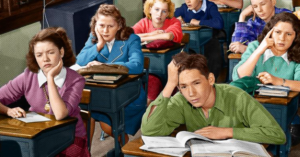
Sorry, Canada: Schools Aren’t Doing Enough to Teach Students Workers’ Rights and Labour History
Experts say Canadian schools fail to adequately inform students about their rights as workers before joining the labour force
Even though Canadian workers built this country from the bottom-up, experts say many students are graduating from Canadian high schools with little knowledge of labour history or their rights as workers.
According to experts in the field of labour studies, even though there has been an emphasis on schools teaching so-called “hard skills” and preparing students for the workplace over the last few decades, understanding labour laws does not seem to get the same attention.
“It’s fair to say that most students taking intro to labour studies at university are not very aware of either unions or workers’ rights,” Professor Stephanie Ross of McMaster University’s School of Labour Studies told PressProgress.
“It clearly continues to be underemphasized.”

Innaugural Canadian Labour Congress Convention (CLC, 1956)
The consensus opinion among experts is that workers’ rights and labour history are not widely taught in schools across Canada.
Ontario high schools do briefly mention occupational health and safety rules and trade unions in their career studies and social sciences curricula, but the experts say this only skims the surface.
Erika Shaker, Education Director at the Canadian Centre for Policy Alternatives, told PressProgress that labour issues typically take a back seat to issues that reflect the needs and concerns of the business community:
“While there has been, particularly of late, a great deal of attention paid to the need for more “financial literacy” and “career” education in K-12 schools to prepare students for the volatility of the marketplace and economic unpredictability, there has been no corresponding call for “economic literacy,” let alone labour education or workers’ rights.”
An authentic effort at emphasizing a labour perspective in education would mean changing the way Canadians currently think about topics like financial literacy and career studies, Shaker adds:
“When we say kids need to learn about financial literacy or career studies, that must come with a basic knowledge of how collective action ensures a better standard of living and quality of work life, and that it’s more than simply learning how to balance a chequebook, differentiating between “wants and needs” or acquiescence to marketplace demands like “outsourcing” and “flexibility.”
Simon Black, a Professor in Brock University’s Department of Labour Studies, calls the state of labour education in Canadian schools “poor.”
Black told PressProgress that while it’s hard to find good labour content in Canadian schools, “business courses are a feature of every high school curriculum across the country.”
“Workers rights, labour history and labour relations may find a place in civics, history or social science classes, but it’s very uneven … We need to change that. Young workers need to know their rights and know how workers past and present change the world of work for the better.”
Shaker agrees:
“Every student should graduate with a basic knowledge of their rights as workers, as well as the broader societal benefits won by organized labour on behalf of their members and enjoyed by all of us, especially when inequality remains stubbornly persistent even at a time of impressive economic growth, and as the corporate refrain touting the opportunities – for them, anyway – of flexible, lower-wage, just-in-time jobs sans benefits continues unabated.”
While everyone recognizes civics classes are important, Shaker says the role of unions in extending democratic principles to workplaces and making improvements to the collective good are equally important:
“When we talk about the importance of civics education, students need to learn that unions are often the most immediate way in which workers can express their concerns, share ideas, and organize with their coworkers to make collective improvements – a veritable civic action training ground, in fact.”
A better curriculum, Shaker says, would emphasize labour’s contributions to Canadian history, their role in creating “safer workplaces” and helping establishing important social programs:
“When we say kids need to learn their history, the struggle for workers’ rights and safer workplaces should be part of that, as well as the role organized labour played in the fight for accessible, high quality social programs like health care and child care.”
Our journalism is powered by readers like you.
We’re an award-winning non-profit news organization that covers topics like social and economic inequality, big business and labour, and right-wing extremism.
Help us build so we can bring to light stories that don’t get the attention they deserve from Canada’s big corporate media outlets.
Donate



